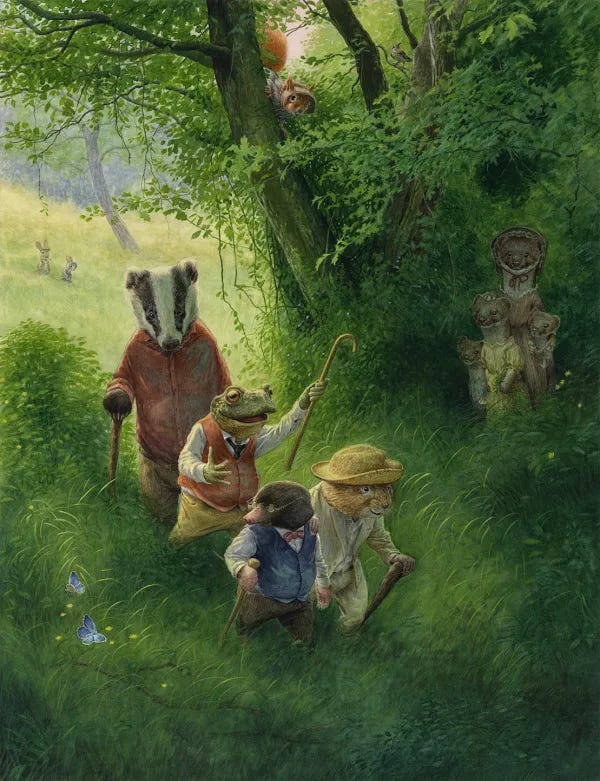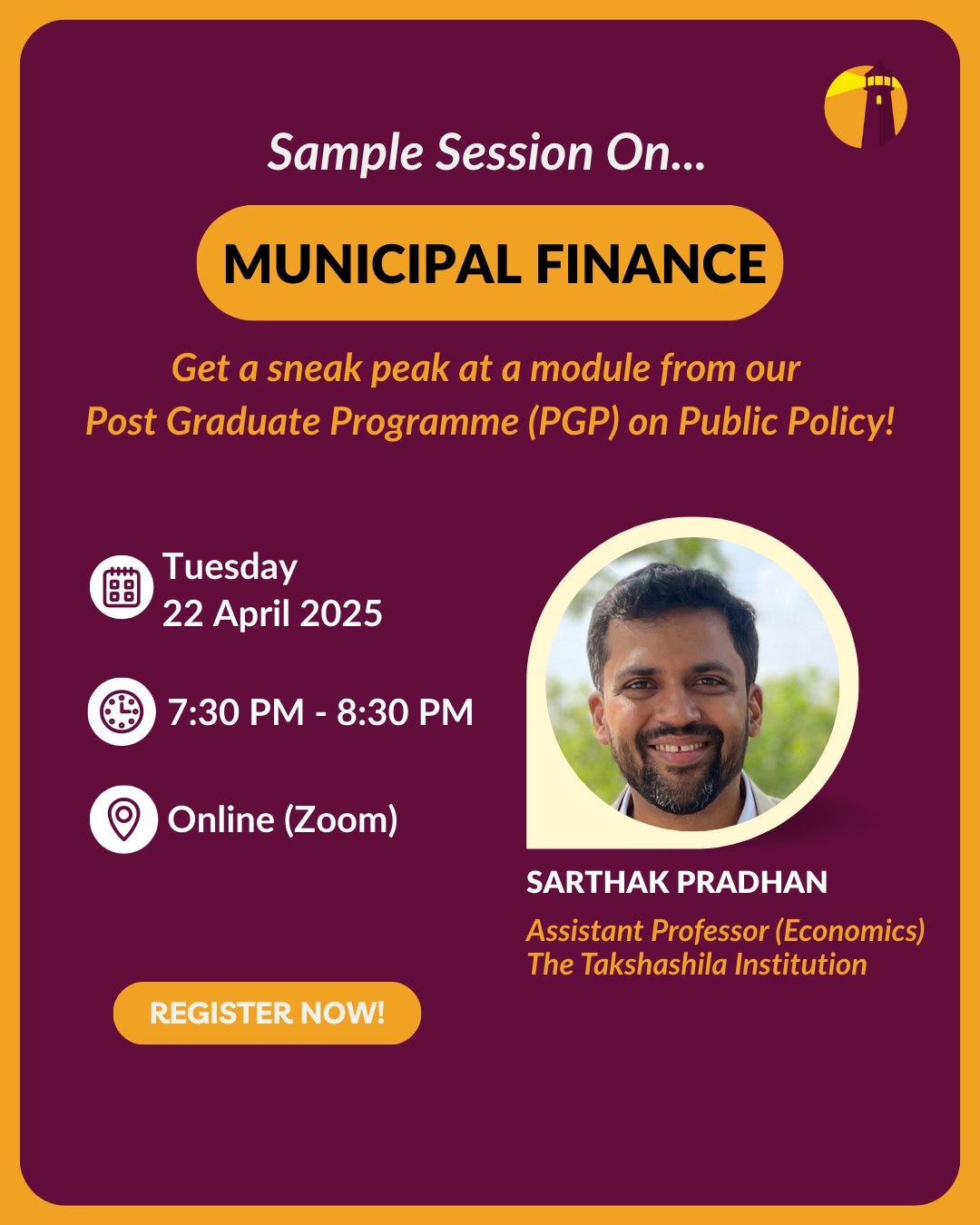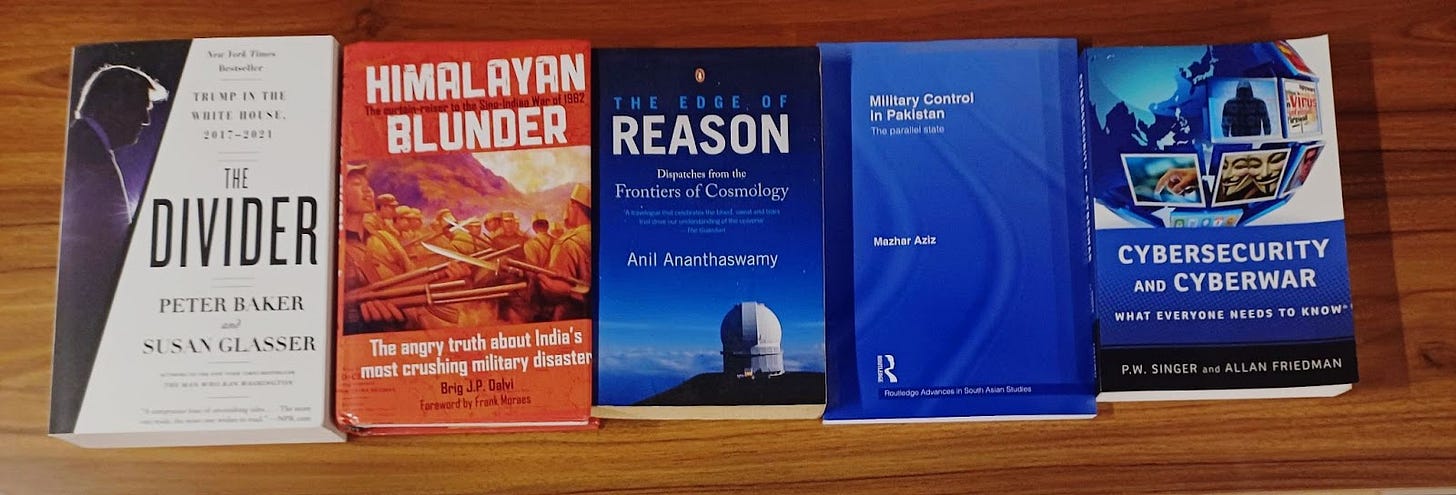A Wind in the American-Chinese Willows?
While 1909 was the year that marked the end of US President Theodore Roosevelt’s term as president, it was incidentally the same year that he penned a letter to British author, Kenneth Grahame, sharing the following about one of the latter’s books: "[I] have read it and reread it, and have come to accept the characters as old friends".
Which book was Roosevelt praising so earnestly, I hear you ask, dear reader. None other than the 1908 classic piece of children’s literature: Wind in the Willows. Written following Grahame's retirement as Secretary at the Bank of England, the story was drawn from a collection of bedtime tales (letters) written for Grahame’s then-seven year old son, Alistair.
The book regularly finds itself in the list of top 100 children’s books of all time (most recently in a poll conducted by BBC Culture in 2023); set in the English countryside, it features the ostensibly banal lives of its central characters: Mole, Rat, Mr. Toad, and Mr. Badger, each beautifully (and convincingly) anthropomorphised for their readers’ benefit.
Let me now invite you to glimpse a rather salient-for-the-times interaction between three of the four central characters, from Chapter II of the book, titled, ‘The Open Road’.
We find Rat and Mole at the tail end of a road trip they have reluctantly taken with Mr. Toad and now the former two are missing their home, the river:
At last they turned into their little bunks in the cart; and Toad, kicking out his legs, sleepily said, “Well, good night, you fellows! This is the real life for a gentleman! Talk about your old river!”
““I don’t talk about my river,” replied the patient Rat. “You know I don’t, Toad. But I think about it,” he added pathetically, in a lower tone: “I think about it—all the time!”
The Mole reached out from under his blanket, felt for the Rat’s paw in the darkness, and gave it a squeeze. “I’ll do whatever you like, Ratty,” he whispered. “Shall we run away to-morrow morning, quite early—very early—and go back to our dear old hole on the river?”
“No, no, we’ll see it out,” whispered back the Rat. “Thanks awfully, but I ought to stick by Toad till this trip is ended. It wouldn’t be safe for him to be left to himself. It won’t take very long. His fads never do. Good night!”
The end was indeed nearer than even the Rat suspected.
Takshashila Director and Co-Founder Nitin Pai, may have similar advice to offer to those who have curiously been watching the US-China trade war play out: the end could be near…and it may be US President Trump who folds first.
In the interim however, “economic pain is inevitable” writes Nitin, in his recent column in The Mint, as he attempts to read the tariff ‘tea leaves’ and predict what could be brewing in the US-China trade relationship:
“...if Trump holds his line and tariff levels (and uncertainty) persist over several months, it is possible that consumers, firms, farmers and investors will all feel the pain simultaneously. If that happens, the effect will go far beyond a change in US trade policy.
What about China? The manner in which the US imposed tariffs and the accompanying orchestra portraying China as its big adversary have fuelled an already surging nationalist narrative in the People’s Republic. At times such as this, the first-order effect would be one where people rally around Xi Jinping and the Communist Party. This is ironic because Xi, more than any other person, is responsible for the policies that pushed the United States into this trade war.”
To take a closer look at his insightful commentary, including his prediction how this entire tariff tiff may end, follow this link.
A Session on City Finances! (With None Other Than Sarthak)
Dear reader, are you keen to get a nuanced and comprehensive view of the world of public policy?
What better opportunity to do so than with our 48-week Post Graduate Programme in Public Policy (PGP)! What specifically could this programme offer you? Allow us to show you!
Join our PGP preview to learn from one of our stellar faculty himself: Sarthak Pradhan (Assistant Professor and public finance wizard, we’ll have you know) and see what a PGP classroom looks like.
Register here to join our session on April 22 at 7:30pm. See you there!
U.S. Re-Directing its Global Cyber Security Efforts Toward China?
The US’ trade war actions may be detracting attention from the Trump administration’s decisions related to the global cyber landscape, writes High-Tech Geopolitics Research Analyst, Lokendra Sharma, in his recent Op-Ed in Moneycontrol.
Lokendra scrutinizes a series of evidence including: the US Cyber Command pausing offensive cyber operations against Russia and Mike Waltz’s statements around a US- offensive approach in the cyber domain “to establish mutually assured destruction vis-a-vis actors such as China” and argues for why China may feature more prominently in the US cyber security strategy.
Read his full article at the link provided.
What’s the Fuss with PMRF?
Amidst the many allocations in the 2018-19 Union budget, you may have caught news, dear reader, of the ₹600 crore allocated over five years for 10,000 fellowships under the Prime Minister Research Fellowship (PMRF). While this development may be a harbinger of a more robust research and development ecosystem, our High-Tech Geopolitics team takes a closer look.
In his recent Op-Ed in the Hindustan Times, High-Tech Geopolitics Research Analyst, Avinash Shet, finds that the Fellowship’s eligibility criteria is too restrictive, it may better achieve its intended outcomes if subsumed into the Anusandhan National Research Foundation (ANRF) and deepening industry partnerships. Take a closer look at this assessment of the PMRF by following this link.
It’s Here! Takshashila’s State of AI Governance Report…
We’ll cut to the chase: Takshashila’s State of AI Governance Report (2024) is out! The hope of this inaugural report (and subsequent annual reports) is the following:
This report provides a systematic comparative analysis of AI governance approaches across different countries, revealing their strategic priorities. Further, the effectiveness of corporate self-regulation initiatives and the progress of multistakeholder collaborative efforts are also analysed. It concludes by offering predictions in these areas in the coming year.
This annual report will track key developments, analyse trends and offer informed predictions for the AI governance environment. It is intended to provide policymakers, analysts, and interested citizens with insights that help navigate the evolving AI governance landscape.
Read the report’s findings, including a series of AI governance-related global predictions as well as predictions for India, China, the US, the EU and for corporates, in their entirety at this link.
Takshashila Tabletop Trove!
For our regular readers, you know of course that this section of Dispatch is intended to be a digital repository of the books that sit in Takshashila’s physical office space in Bengaluru, Karnataka. So what’s this week’s book theme? Read on, curious reader. Hint: related to the themes covered in this edition of Dispatch.
This week’s (re-shared) theme is: Drawing Blurry Lines. We line with this, we recommend:
The Divider: Trump in the White House, 2017-2021 (Peter Baker & Susan Glasser)
Himalayan Blunder: The Curtain-Raiser to the Sino-Indian War of 1962 (Brig. J.P. Dalvi)
The Edge of Reason: Dispatches from the Frontiers of Cosmology (Anil Ananthaswamy)
Military Control in Pakistan: The Parallel State (Mazhar Aziz)
Cybersecurity and Cyberwar: What Everyone Needs to Know (P.W. Singer & Allan Friedman)
But, Wait, There’s More!
We’re sharing some good news, dear reader. Applications for our Expert Capsule Course on Geospatial Science and Technology are open! This means that you’ll cover everything ranging from cartography to geodesy over a four week online course.
The programme begins on 14 June, but the early bird deadline (hint: scholarship) ends on April 30, so apply here today!
This edition of the Dispatch was written by Kripa Koshy, Programme Manager for Takshashila’s Post Graduate Programme in Public Policy.






